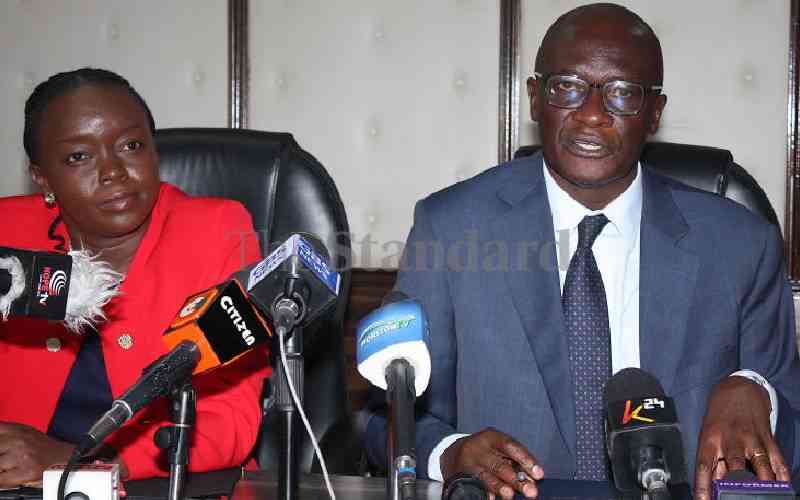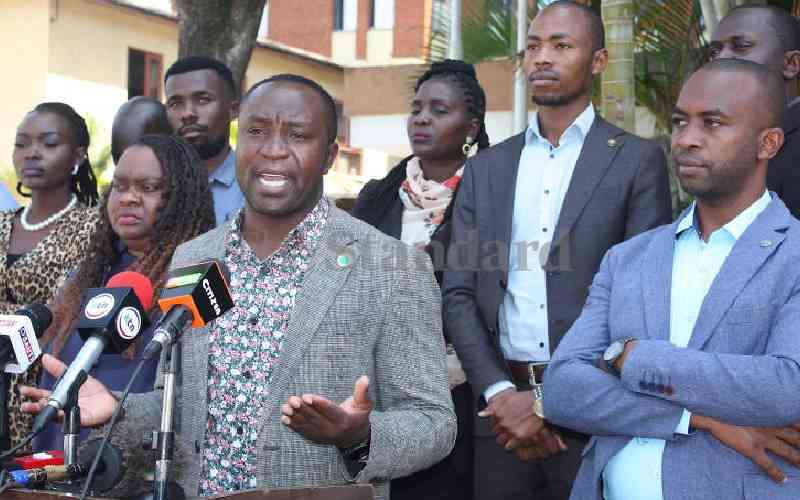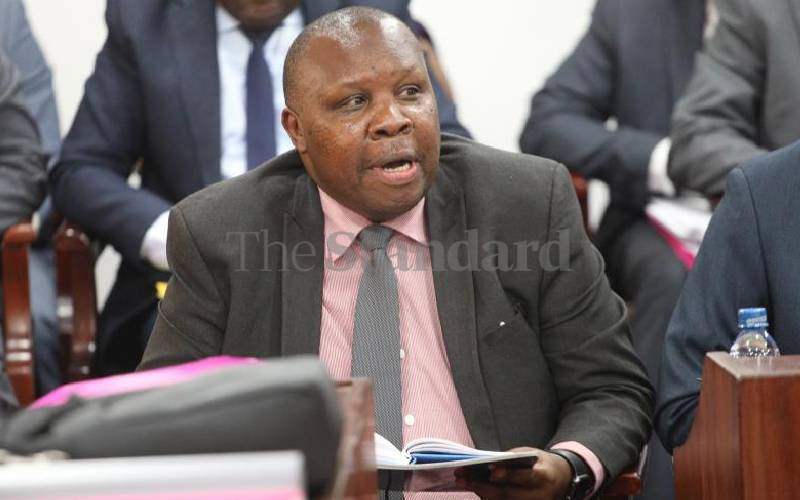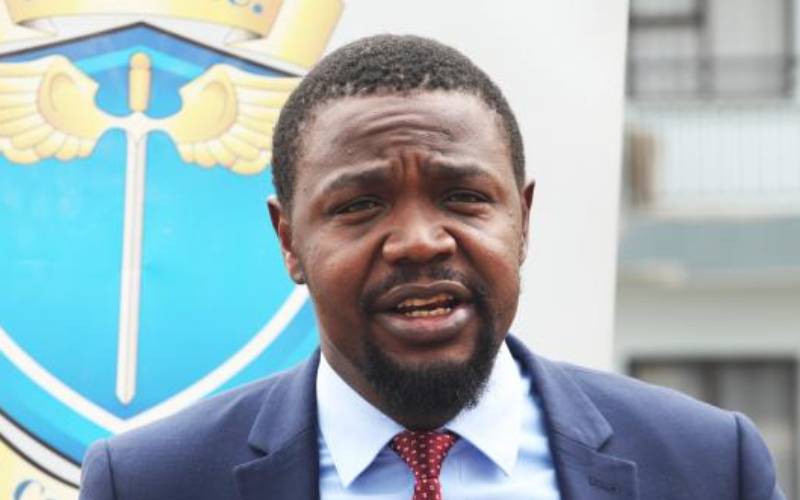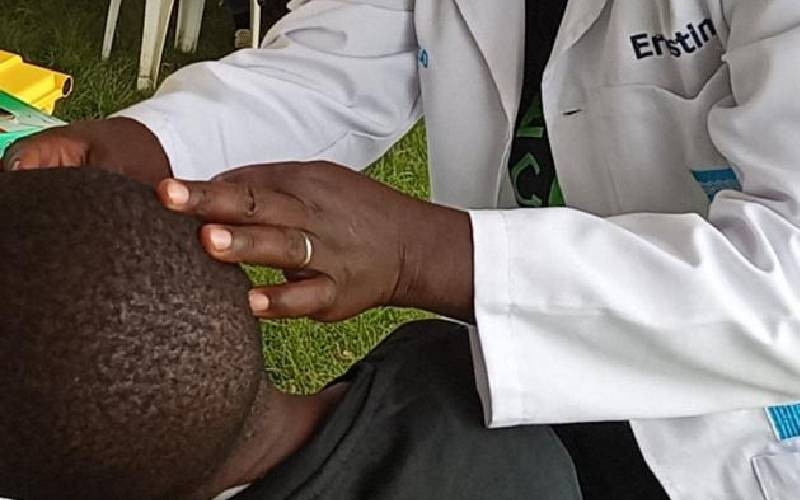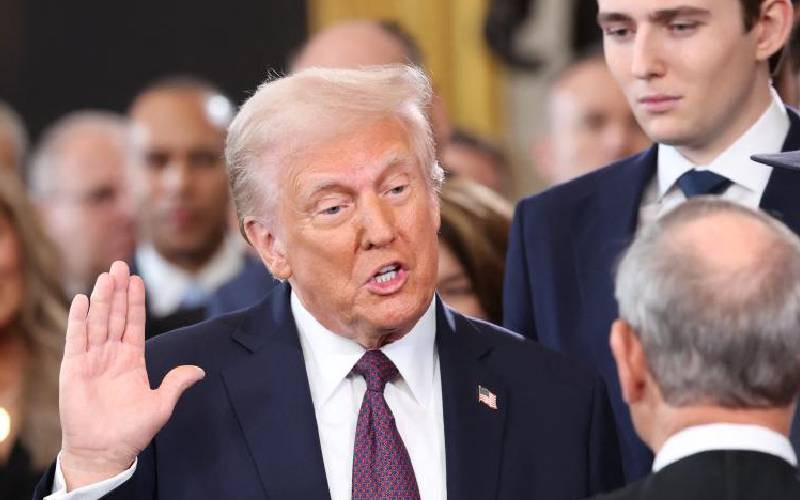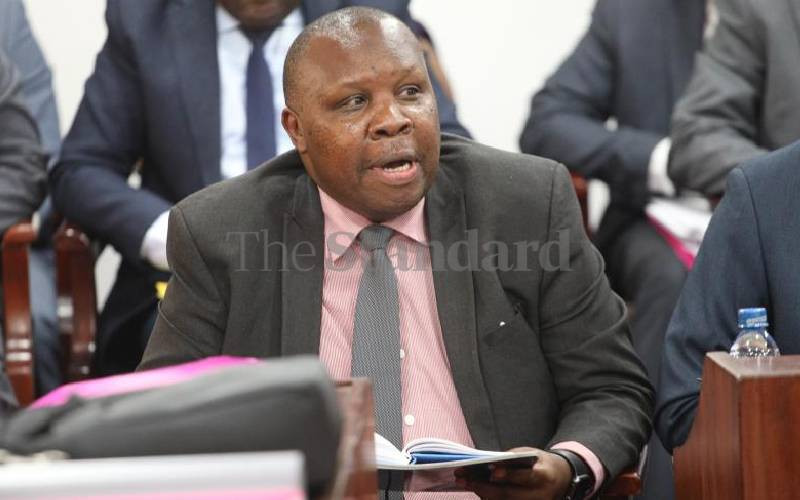
Healthcare workers have opposed President William Ruto’s recent decision to cut funding for oversight councils within the Ministry of Health, warning that the move could compromise service delivery.
A cut in funding, they argue, will delay push by patients for justice whenever a health provider is accused of malpractice. Their concerns follow Tuesday's Cabinet meeting, which cleared plans to merge some parastatals and councils while dissolving others as part of a broader restructuring initiative.
Among the councils affected are the Nurses' Council, Clinical Officers Council, and the Kenya Medical Practitioners and Dentists Council (KMPDC), which play critical roles in regulating healthcare professionals and facilities.
President Ruto’s Cabinet proposed declassification of these councils, effectively cutting off their access to exchequer funding. Currently classified as state corporations, the councils rely on government support for their operations.
KMPDU Deputy Secretary General Dr Dennis Miskellah criticised the move, noting that KMPDC is essential for regulating medical practice, licensing doctors and dentists, accrediting health facilities, and addressing complaints of medical negligence.
“By scrapping exchequer support for regulatory bodies, we are directly risking the lives of Kenyans. It is not a wise move,” Miskellah told The Standard.
He added: “KMPDC will not have the capacity to regulate medical practice and hear complaints of medical negligence across the country. The president should rethink this decision."
With offices spread across all 47 counties, KMPDC has been instrumental in ensuring quality healthcare services, but without funding, Miskella warned the council may not sustain its operations.
He added that patients search for justice might also delay, with some of their complaint not being solved, as they may be forced to go through the court where cases are delayed.
KMPDC, established in 1997 by the Act of Parliament, licenses doctors, dentists and doctors specialists, whereas pharmacists are regulated by the pharmacists and dentists board.
The council also license hospitals and take action against doctors accused of negligence and other malpractice.
With the coming in of Social Health Authority (SHA), the council is empanel hospitals providing care, including mission, private, public and faith based.
Since launch of SHA that repealed National Health Insurance Fund (NHIF), KMPDC has accredited at least 13,477 hospitals with some 8,000 having signed a contract.
“KMPDC has simply been told to find its own source of revenue. They will not get budgetary allocations from the exchequer,” said Miskella.
Currently, despite doctors being regulated by KMPDC, they pay licensing fee to E-Citizen, with lack of clarity on who managed the monies.
“We are paying our licences to E-Citizen. I do not know where they will get their money for day-to-day running?” posed the official.
He vowed that doctors will not allow a cut in their salaries for running of KMPDC. “Licensing of doctors cannot bring in enough money to run KMPDC. KMPDU will not allow any deductions in doctors pay slips,” he said.

Kenya Union of Clinical Officers (KUCO) Secretary General George Gibore criticised the decision to merge Clinical Officer's Council established by an Act of Parliament with the doctors council.
Clinical Officers Council regulates clinical officers in terms of training and practise. The council also supervises training of clinical officers, registration and practise of all clinical officers in addition to handling malpractice.
Gibore said the council does not depend on the exchequer to run its affairs despite being a state entity. He said it gets money from members and students in training institutions.
“These institutions get millions, for example when students do indexing, when doing exams, internship and annual licensing of practitioners,” said Gibore. “I doubt whether they will be affected”.
Miskellah further commended KMPDC saying the body has been key in actualisation of Universal Health Coverage (UHC), by ensuring hospitals offer quality care.
Without funding, he said, “Without KMPDC, anything can go, anybody can put on a lab-coat and call themselves a doctor, even a butcher can call themselves ‘daktari’, even a cleaner in hospital can call themselves daktari. That is why the moment we start to strangle KMPDC with lack of funds, we undermine Kenyans' rights to healthcare.”
Unlike clinical officers who are adamant about merging health bodies, doctors are pushing to have a body regulating all healthcare professionals.
Clinical officers strongly oppose the merger of health workers regulatory bodies saying each should be regulated by an agency with knowledge of its operations for example nurses should be regulated by nurses' council, whereas clinical officers by clinical council.
“We have an Act of Parliament that establishes the bodies and if you want to say that you want to merge clinical officers, doctors and nurses, this is a move backward because we have seen countries including US coming to benchmark with us for self-regulation," said Gibore.
"Clinical officers will resist any proposal to merge clinical officers with other cadres because know that is a backward move,” he vowed.
 The Standard Group Plc is a multi-media organization with investments in media platforms spanning newspaper print
operations, television, radio broadcasting, digital and online services. The Standard Group is recognized as a
leading multi-media house in Kenya with a key influence in matters of national and international interest.
The Standard Group Plc is a multi-media organization with investments in media platforms spanning newspaper print
operations, television, radio broadcasting, digital and online services. The Standard Group is recognized as a
leading multi-media house in Kenya with a key influence in matters of national and international interest.

